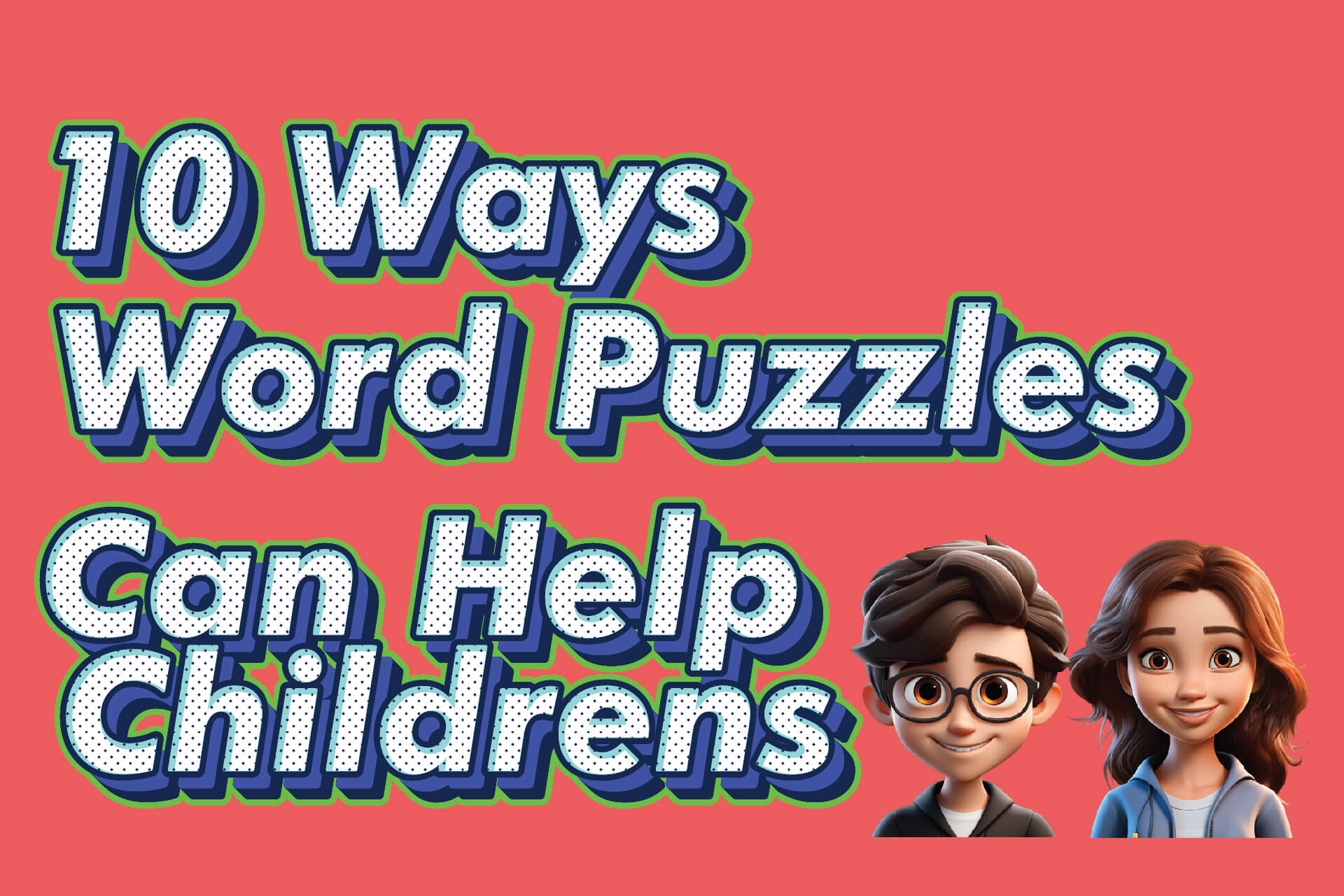Sale Start Today Hurry up Flat 70% off on all Items

10-Ways-Word-Puzzles-Can-Help-Children-BLOG-POST
| Unlocking the Mind: 10 Ways Word Puzzles Can Help Children Word puzzles have long been a beloved pastime for people of all ages, but their benefits extend beyond entertainment. When it comes to children, these brain-teasing games offer a wealth of cognitive, linguistic, and developmental advantages. In this article, we’ll explore 10 ways in which word puzzles can positively impact children’s growth and learning. Enhanced Vocabulary: Word puzzles introduce children to new words and expand their vocabulary, helping them become more proficient readers and communicators. Improved Spelling: Consistent exposure to word puzzles reinforces correct spelling, making it easier for kids to avoid common spelling errors in their writing. Boosted Reading Skills: Engaging with words in a playful context enhances reading skills, as children become more adept at recognizing and decoding words. Enhanced Critical Thinking: Word puzzles require logical thinking and problem-solving skills, encouraging children to think critically and find solutions to complex challenges. Improved Memory: Solving word puzzles involves remembering word patterns and connections, which enhances memory and recall abilities in children. Better Concentration: Completing word puzzles demands focus and concentration, helping kids develop this crucial skill for academic and everyday tasks. Enhanced Cognitive Skills: Word puzzles stimulate cognitive functions like reasoning, deduction, and pattern recognition, which are vital for overall intellectual development. Enhanced Confidence: Successfully solving word puzzles boosts children’s self-esteem and confidence, as they see their abilities improving over time. Stress Reduction: Engaging in word puzzles can be a relaxing and stress-reducing experience, promoting emotional well-being in children. Encouragement of Lifelong Learning: Word puzzles instill a love for language and a curiosity for words, encouraging children to become lifelong learners and readers. Word puzzles come in various forms, such as crosswords, word searches, anagrams, and cryptograms, providing a diverse and engaging way for children to interact with language. In today’s digital age, where screens often dominate leisure time, word puzzles offer a screen-free alternative that fosters intellectual growth and linguistic skills. They are an accessible and enjoyable resource for parents and educators to support children’s learning and development. So, the next time you see a word puzzle, consider it not just as a game but as a powerful tool for unlocking your child’s potential and nurturing a lifelong love for language. |
